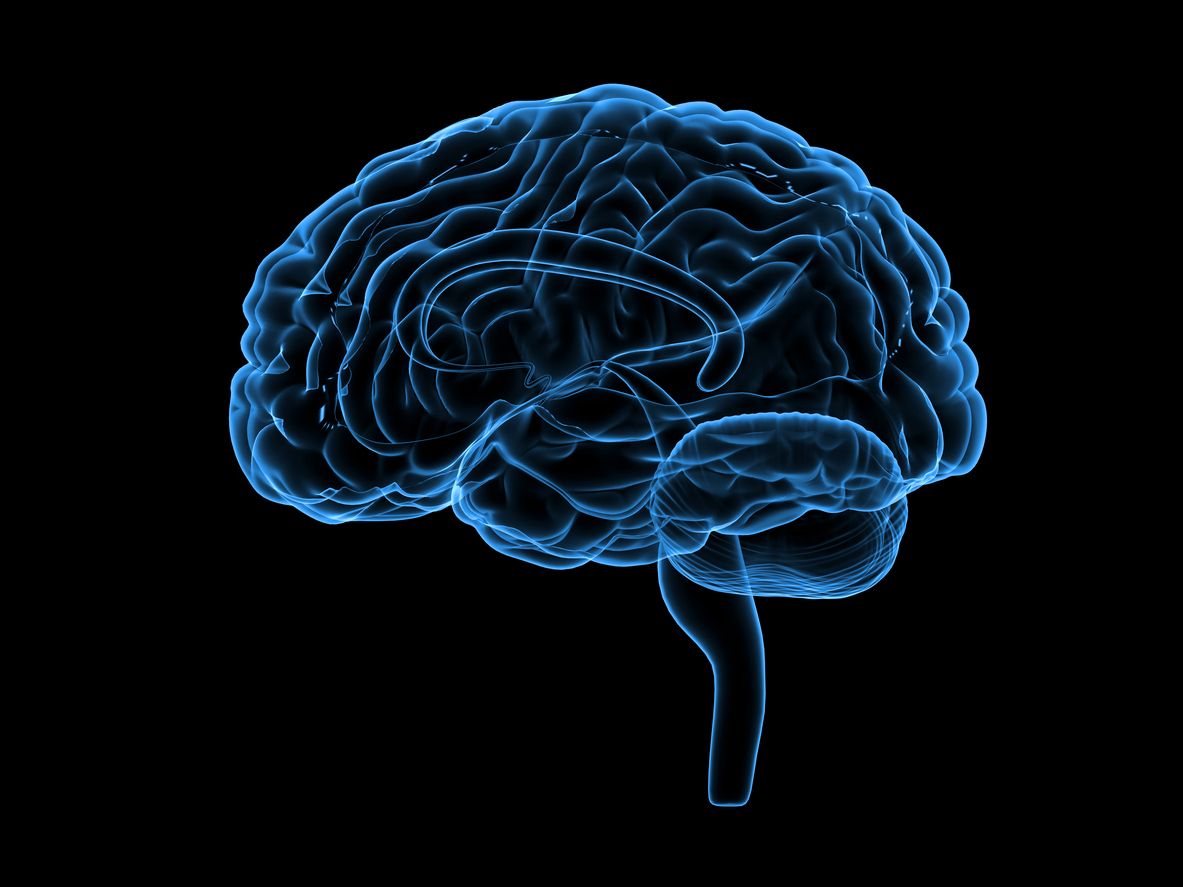Scientists want to zap your brain to stop you from making dumb decisions


A free daily email with the biggest news stories of the day – and the best features from TheWeek.com
You are now subscribed
Your newsletter sign-up was successful
Have you ever wished that a higher being would stop you from doing stupid things just before you do them? Researchers at the Stanford University School of Medicine may have just discovered the next best thing: implantable devices that can shock your brain out of self-destructive choices.
The scientists, studying deep brain stimulation in mice, found that electrical activity in the nucleus accumbens — a deep part of the brain that controls our reward systems — spikes right before a "moment of weakness." By shooting electricity to the nucleus accumbens through a specialized device right as this increased activity was detected, they were able to prevent mice from giving into their vices — in this case, high-fat food the mice had been taught to binge eat.
The researchers theorize that the results found in mice can be replicated in humans because the nuclear accumbens is an older part of the brain shared among most vertebrates. In the case of the study's one human subject — a patient diagnosed with obsessive-compulsive disorder for whom other treatments had been ineffective — researchers conditioned the individual to expect cash-based rewards based on completing a certain task. Eventually, as the patient prepared to complete the task, researchers noticed similar electrical activity in the nucleus accumbens as had been detected in the mice right before they devoured the high-fat foods.
The Week
Escape your echo chamber. Get the facts behind the news, plus analysis from multiple perspectives.

Sign up for The Week's Free Newsletters
From our morning news briefing to a weekly Good News Newsletter, get the best of The Week delivered directly to your inbox.
From our morning news briefing to a weekly Good News Newsletter, get the best of The Week delivered directly to your inbox.
The study's authors believe that the similarity in the neurological response indicates that deep brain stimulation devices could react to problematic energy in the nucleus accumbens, preventing impulsive decision-making with just a few zaps. The devices are currently in clinical trials for patients with depression and obsessive compulsive disorder.
"Imagine if you could [use DBS devices] predict and prevent a suicide attempt, a heroin injection, a burst of binge eating or alcohol intake, or a sudden bout of uncontrolled rage," said Casey Halpern, the study's senior author. Read more about the study here.
A free daily email with the biggest news stories of the day – and the best features from TheWeek.com
Kelly O'Meara Morales is a staff writer at The Week. He graduated from Sarah Lawrence College and studied Middle Eastern history and nonfiction writing amongst other esoteric subjects. When not compulsively checking Twitter, he writes and records music, subsists on tacos, and watches basketball.
-
 Are AI bots conspiring against us?
Are AI bots conspiring against us?Talking Point Moltbook, the AI social network where humans are banned, may be the tip of the iceberg
-
 5 calamitous cartoons about the Washington Post layoffs
5 calamitous cartoons about the Washington Post layoffsCartoons Artists take on a new chapter in journalism, democracy in darkness, and more
-
 Political cartoons for February 14
Political cartoons for February 14Cartoons Saturday's political cartoons include a Valentine's grift, Hillary on the hook, and more
-
 ‘One Battle After Another’ wins Critics Choice honors
‘One Battle After Another’ wins Critics Choice honorsSpeed Read Paul Thomas Anderson’s latest film, which stars Leonardo DiCaprio, won best picture at the 31st Critics Choice Awards
-
 Son arrested over killing of Rob and Michele Reiner
Son arrested over killing of Rob and Michele ReinerSpeed Read Nick, the 32-year-old son of Hollywood director Rob Reiner, has been booked for the murder of his parents
-
 Rob Reiner, wife dead in ‘apparent homicide’
Rob Reiner, wife dead in ‘apparent homicide’speed read The Reiners, found in their Los Angeles home, ‘had injuries consistent with being stabbed’
-
 Hungary’s Krasznahorkai wins Nobel for literature
Hungary’s Krasznahorkai wins Nobel for literatureSpeed Read László Krasznahorkai is the author of acclaimed novels like ‘The Melancholy of Resistance’ and ‘Satantango’
-
 Primatologist Jane Goodall dies at 91
Primatologist Jane Goodall dies at 91Speed Read She rose to fame following her groundbreaking field research with chimpanzees
-
 Florida erases rainbow crosswalk at Pulse nightclub
Florida erases rainbow crosswalk at Pulse nightclubSpeed Read The colorful crosswalk was outside the former LGBTQ nightclub where 49 people were killed in a 2016 shooting
-
 Trump says Smithsonian too focused on slavery's ills
Trump says Smithsonian too focused on slavery's illsSpeed Read The president would prefer the museum to highlight 'success,' 'brightness' and 'the future'
-
 Trump to host Kennedy Honors for Kiss, Stallone
Trump to host Kennedy Honors for Kiss, StalloneSpeed Read Actor Sylvester Stallone and the glam-rock band Kiss were among those named as this year's inductees
